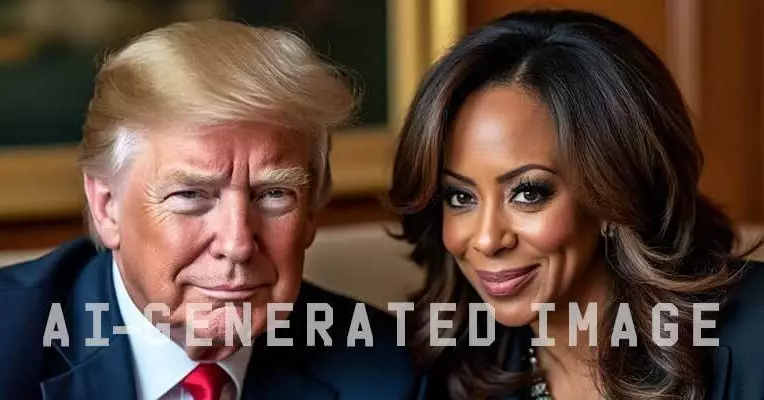When looking at the recent incident where Elon Musk shared a fake image of Kamala Harris dressed as a communist dictator, it highlights the limitations of AI in accurately depicting individuals. The image, created with X’s Grok tool, barely resembled the vice president, leading many to mock the attempt. Users pointed out that the AI-generated image looked more like a random Latina woman or even Eva Longoria, showcasing the struggles AI faces in replicating Kamala Harris accurately.
The problems with AI image generation go beyond just the Harris incident. Various AI-generated images featuring Harris and Donald Trump in unrealistic scenarios have gained popularity on social media platforms. These images often depict Harris with varying features and sometimes resembling other public figures like Michelle Obama. This inconsistency in portraying Harris raises concerns about the lack of accurate representation in AI-generated content.
The ability of tools like Grok to create fake photos of political figures has raised alarm bells regarding the misuse of AI technology. Many platforms, including Midjourney, have taken steps to block users from generating images of certain political figures to prevent the spread of misleading or politically charged content. This move highlights the potential risks associated with AI image generation and the need for stricter controls over such technologies.
AI image generators rely on diffusion models to create images based on text prompts. These models are trained on thousands of labeled images, usually sourced from the internet or other databases. However, the challenges in accurately depicting Kamala Harris compared to Donald Trump can be attributed to the lack of well-labeled pictures of Harris. As a relatively new public figure compared to Trump, Harris has fewer publicly available images, making it harder for AI algorithms to generate accurate representations.
The struggles faced by AI image generators in creating realistic images of Kamala Harris underscore the importance of quality training data. Platforms like Getty Images have significantly fewer images of Harris compared to Trump, which impacts the ability of AI models to accurately replicate her features. This gap in training data highlights the need for more diverse and comprehensive datasets to improve the accuracy of AI image generation, especially when it comes to depicting public figures.
The challenges in creating realistic images of Kamala Harris using AI technology expose the limitations of current algorithms and the importance of quality training data. Addressing these issues requires a more nuanced approach to dataset collection and model training to ensure accurate representation in AI-generated content. As AI technology continues to evolve, it is essential to prioritize diversity and accuracy in training data to avoid misleading or inaccurate depictions of individuals in the digital realm.


Leave a Reply